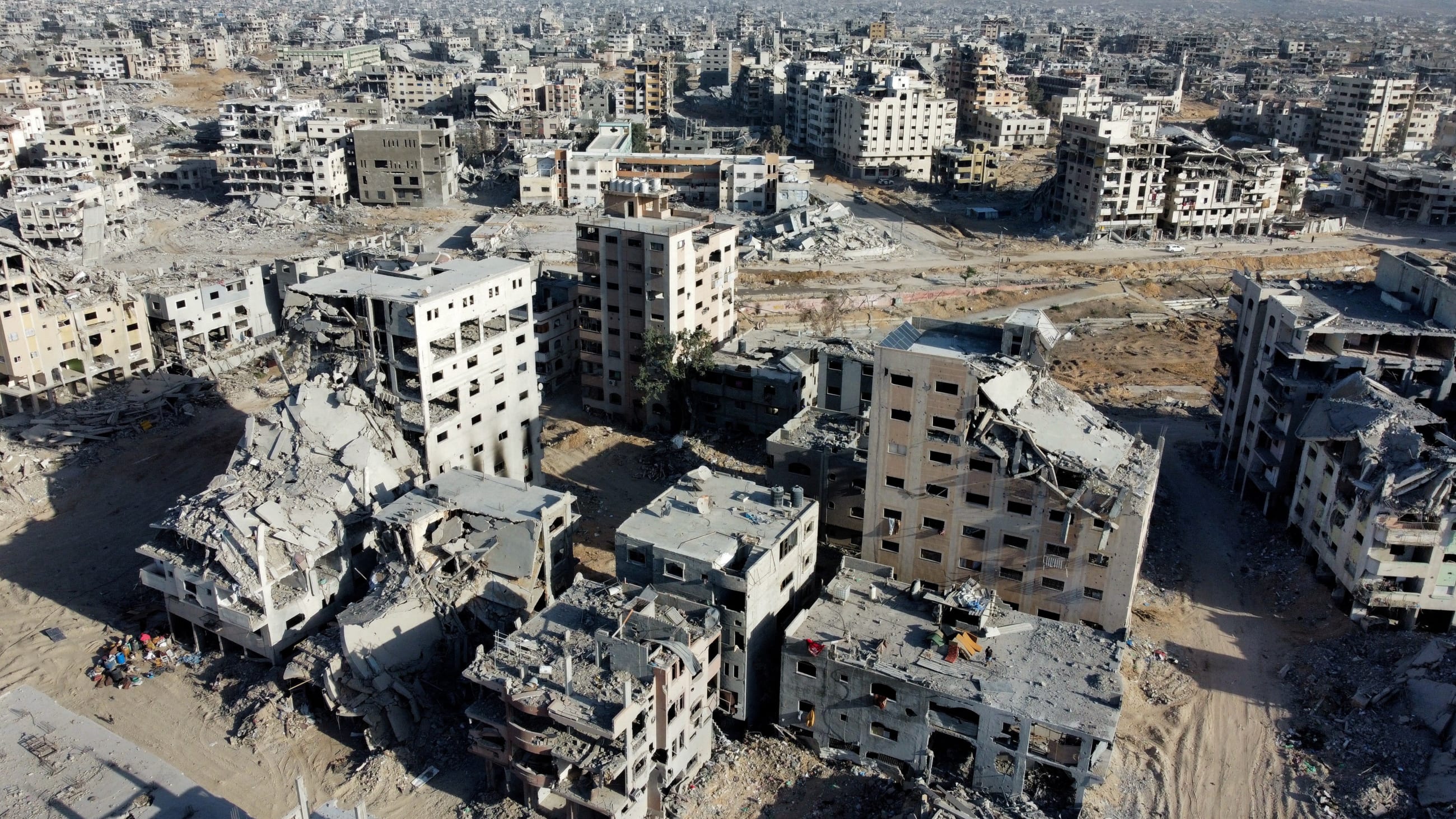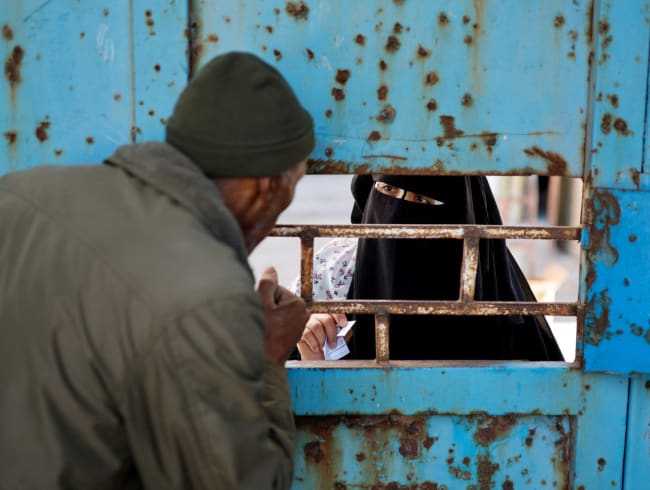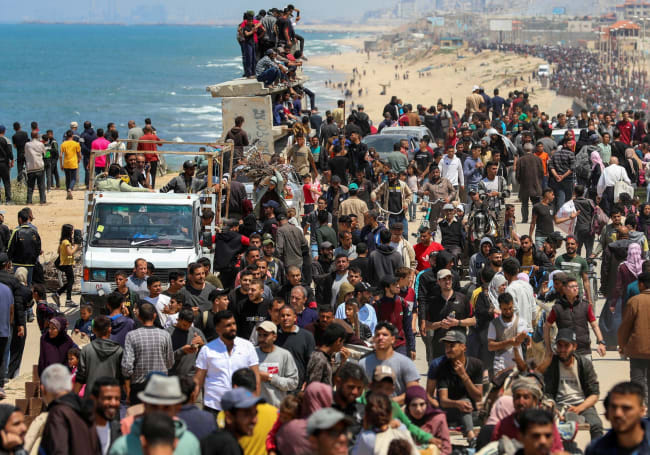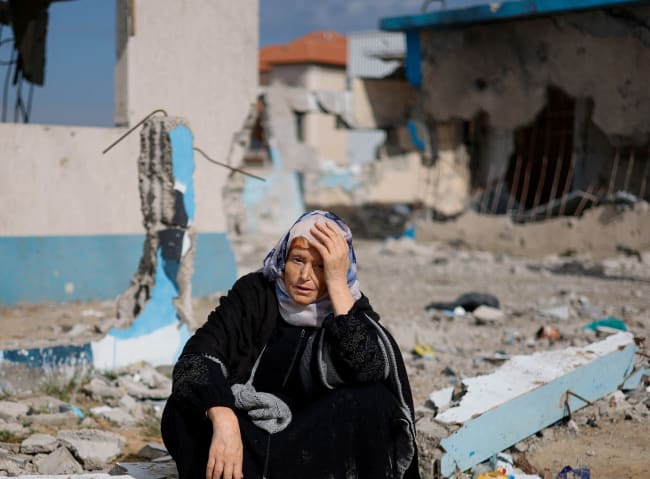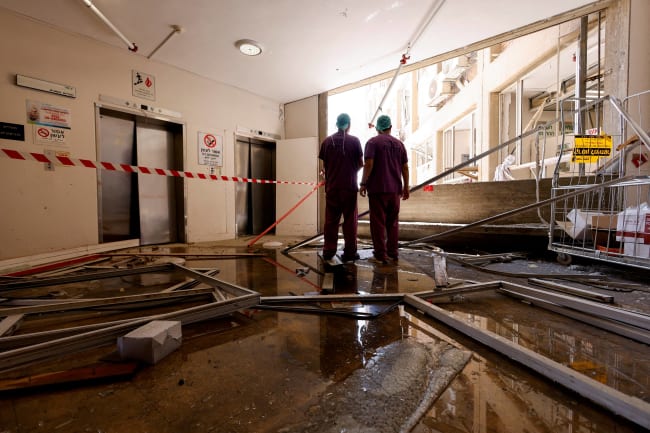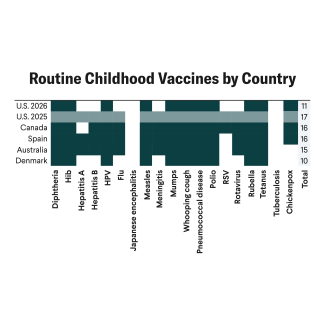Its living hostages returned and an end to the war in Gaza possible, Israel is grappling with the need for a reckoning around the security and leadership failures of October 7, 2023, and for the subordination of the hostages' return to Prime Minister Benjamin Netanyahu's political interests. Anguished voices within Israel are urging the government to engage in a moral reckoning as well for its conduct during the war.
For the international community, too, a reckoning is required given its inaction to stop health atrocities on an unfathomable scale that include the massive killing of civilians, starvation of the population, and wholesale destruction of health care in Gaza. These failures came at a time when violence against health and health care in war dramatically increased [PDF] and the law itself came under severe strain as states twisted the Geneva Conventions from the purpose of protecting civilians and health care to rationalizing massive civilian harm.
During the course of the war in Gaza, as attacks on health care and denial of humanitarian aid became among its central features, Israel's posture on its legal obligations to protect health and health care devolved from feigned compliance and spurious reinterpretations of the law to open contempt for it. The country's stance threatens the power and even legitimacy of international humanitarian law, the original purpose of which, dating to 1864, was the protection of the wounded and sick and their caregivers, and this tenet remains at its core.
From Posturing to Contempt
Despite its ferocious assault on civilians and health care in Gaza from October 7, 2023, through a ceasefire in January 2025, Israel loudly and persistently claimed fealty to and compliance with international humanitarian law. Netanyahu celebrated repeatedly the Israel Defense Forces (IDF) as the "most moral army in the world." After particularly horrific attacks, spokespeople appeared regularly in international media arguing that, even in the face of Hamas atrocities, Israel's military adhered to the Geneva Conventions, including its requirements of proportionality in attacks, special protection of health facilities, and obligations to take all feasible precautions to minimize harm to civilians.
Israel's claims were often tendentious as to the facts, and included often unverified [PDF] or exaggerated assertions of Hamas's use of hospitals. During hospital assaults, the IDF frequently cut off water and electricity essential for life support, impeded medical care, arrested health workers, killed civilians, and destroyed equipment. The entry of food into Gaza also became so severely restricted that the International Court of Justice issued provisional measures to prevent starvation in the genocide case South Africa brought against Israel in late 2023, and the International Criminal Court's arrest warrants for Netanyahu and former Defense Minister Yoav Gallant focused principally on the crime of starving the population.
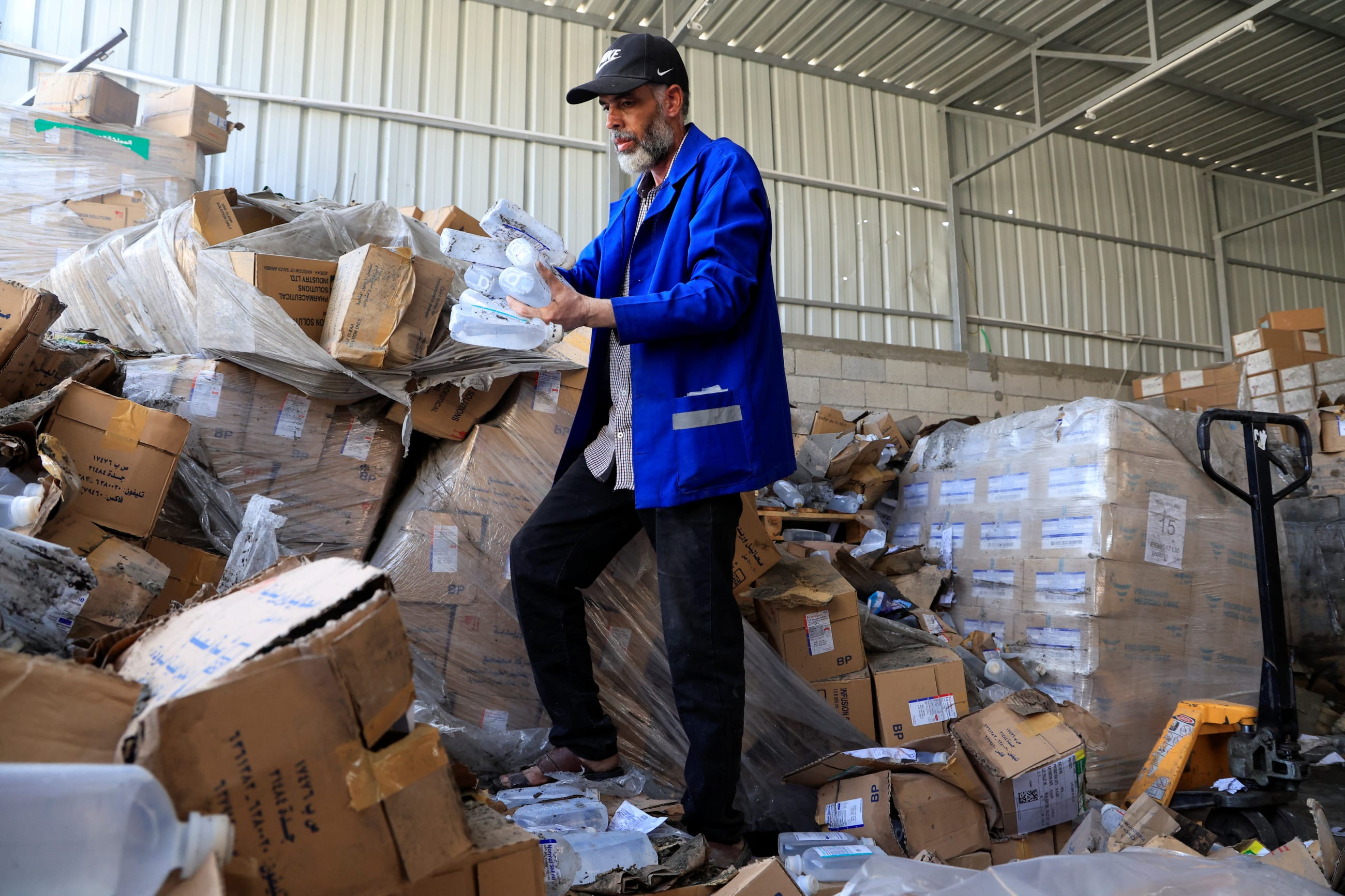
At the same time, Israel relied on novel and baseless interpretations of international humanitarian law. Israel and its apologists argued that duty to minimize harm to civilians could be met by forced evacuations of civilians from their homes and patients from hospitals. They argued, too, that almost limitless harm to civilians in attacks could be deemed proportional if the attacks were in response to an existential threat.
In March 2025, Israel's posture moved from reinterpreting the law to open contempt for it. On March 2, Netanyahu cut off all food and medical supplies to Gaza as a means to pressure Hamas, openly flouting the obligation to facilitate "rapid and unimpeded" passage of aid. Energy Minister Eli Cohen followed by announcing that Israel would no longer supply electricity for desalinization of water drinking, calling the decision "a significant means of pressure."
Unlike in months past, Israel offered no purported legal justification for these acts, just offering spurious claims, refuted by its own military as well as the U.S. Agency for International Development (USAID), that Hamas was stealing food.
Hunger immediately escalated, tens of thousands of children went unvaccinated . . .
The results were cataclysmic. Hunger immediately escalated, tens of thousands of children went unvaccinated, hospitals ran out of blood, and pain medication, anesthetics, and antibiotics ran out. In April, the UN secretary-general said that the blockage of aid had "opened the floodgates of horror" and that "Gaza is a killing field and civilians are in an endless death loop."
On March 18, Israel broke the ceasefire and restarted the war. In its first three weeks, the Office of the UN High Commissioner for Human Rights recorded 224 strikes on residential buildings and tents for internally displaced people. Hospitals came under renewed and punishing attack. On March 21, the IDF blew up the Turkish-Palestinian Friendship Hospital, previously a major cancer center. Two days later, the IDF fired directly into Nasser Hospital, killing a teenage boy and destroying a surgical suite.
On the night of March 23–24, an IDF brigade successively attacked ambulances seeking to reach wounded civilians—as well as follow-on ambulances and a fire truck that sought to find and rescue the first group of responders. All the vehicles were traveling in an authorized zone and were brightly lit with headlights and red flashers. A radio transmission had notified the Israeli troops that ambulances were operating in the area. Even so, the brigade made no effort to stop and inspect the vehicles, and instead fired at each group from close range, killing 14 Palestinian medics and other rescue personnel. The attacks brought the number of Palestinian Red Crescent Society staff and volunteers killed in the war to 30. It was the deadliest attack on Red Cross or Red Crescent workers anywhere in the world in eight years.
The attack received front-page coverage in major media. The IDF initially contended, falsely, that the ambulances were not visible, drove suspiciously, and were found to contain Hamas fighters. When a cellphone video from one of the dead medics contradicted IDF's claims, it conceded that their initial account was "mistaken" and ordered an investigation. But the cover-up continued: The investigation attributed the killings to an "operational misunderstanding" and continued to invoke Hamas's presence even though the evidence contradicted the claims. Its findings concluded that "There was no evidence of any unethical or immoral conduct by the forces," but did not even seek to show compliance with the requirement that medical transports "must be respected and protected in all circumstances."
Another video conveyed a likely explanation for the attack. It showed the brigade commander telling his troops a few days before the incident that "Everyone to be encountered is an enemy. If a figure is identified, open fire. Eliminate them and move on. Don't get confused about this." Humanitarian law had disappeared.
The same contempt for life and law was evident in the IDF's defense of the August 25 attack on Nasser Hospital that killed 20 people, including journalists, patients, health workers, and other civilians. Again, it invoked Hamas to deflect, claiming without evidence that Hamas had placed an observation camera on a balcony of the fourth floor of the hospital. Even had that been the case, it would not have legally justified the multiple shellings, including the secondary ("double-tap") attacks on the rescuers that killed most of the victims.
The mockery of law and life was also reflected in the killing by Israeli forces and contractors of almost 1,400 people seeking food between May 27 and the end of July. Most killings were in the vicinity of four heavily militarized and chaotic aid distribution sites in southern and central Gaza operated by the newly established Gaza Humanitarian Foundation. The number of patients admitted to a Doctors Without Borders field hospital near a distribution site with gunshot wounds increased by 190%. From June 7 to June 25, the organization's clinic in Al Mawasi received 423 people wounded near distribution sites. In response, the IDF either denied any casualties among food-seekers or offered preposterous excuses that the soldiers believed the Gazans posed a threat, that the Gazans approached in a "suspicious manner," or that the IDF fired "warning shots." It never bothered with a legal defense.
An investigation by Israeli newspaper Haaretz revealed that Brigadier General Yehuda Vach, commander of the division responsible for the food distribution, ordered troops to fire at Palestinians waiting for aid to disperse or drive away the crowds. One soldier called his station "a killing field" where one to five people were killed every day. BBC reported that soldiers were told to open fire when a crowd crossed an imaginary red line not shared with food-seekers.
The Need for a Reckoning
In conflicts across the world, combatants routinely breach international humanitarian law. Israel is hardly the first state to rationalize attacks on hospitals because of their alleged misuse for military activities, eschewing any effort to limit harm to patients, staff, and medical infrastructure. In Syria, for example, Russia and the Bashar al-Assad regime lodged easily refuted claims that hospitals were terrorist havens. But Israel's invocation of Hamas's use of hospitals and ambulances as sufficient to justify catastrophic harm to the wounded and sick and their caregivers gained widespread traction and was amplified by its apologists in the media.
Open contempt for the law by a state that claims to be part of an international order threatens the vitality and legitimacy of international humanitarian law. Israel's posture can be an enabler to other countries to commit these crimes and erode law. Two decades ago, U.S. torture of alleged terrorists, rationalized in the name of counterterrorism, had severe global repercussions, including being cited by other abusers. The United States ultimately renewed its embrace of international law after domestic outcry, international condemnation, congressional investigations, legislative action, and official repudiation. Israel should follow the same path. As the Economist stated, Israel has an "existential interest in seeing justice done." If it does not, the country risks becoming an authoritarian, ethno-nationalist state, the signs of which are already present.
International action is essential to restoring global norms, which are already under strain from the Trump administration's permission structure for atrocities and its efforts to sabotage the International Criminal Court, and the Court's paralyzing internal issues. States should bring cases under principles of universal jurisdiction, both to bring perpetrators to justice and to affirm the vitality of the law.
Governments and international agencies should condemn not only violations but also efforts to drain the law of its protective stance. In particular, they should collectively and specifically reject interpretations of the law by any state that dilute or render meaningless provisions such as precautions in attacks, proportionality, the special protection of hospitals, and the facilitation of aid. The May 2026 anniversary of the UN Security Council's landmark resolution on protection of health care in war can be an occasion for the Council to clearly and unequivocally reject efforts to undermine these critical protections and set out their proper understanding.
The opportunity should not be allowed to slip by.
